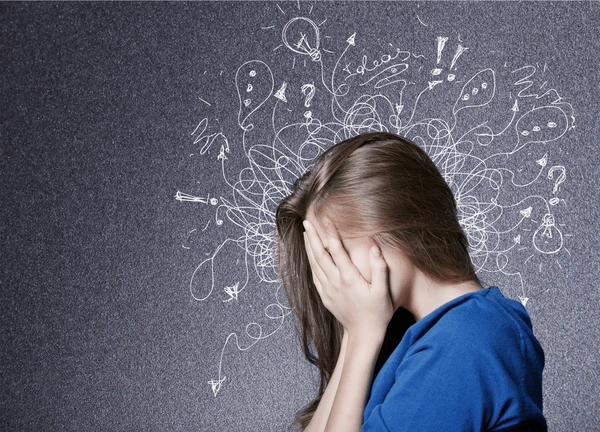Anxiety may become more prevalent in older people due to the difficulties and changes that come with growing older. This article looks at typical symptoms, helpful coping mechanisms designed to assist aging gracefully, and the particular ways anxiety manifests in the elderly. It also explores the possible advantages of meditation for reducing symptoms of anxiety in the senior population.
I. Recognizing Anxiety in Seniors
Senior anxiety is a complicated condition that is impacted by a number of variables, including social isolation, life transitions, and health issues. Health-related issues, bereavement, money difficulties, and changes in living arrangements are common sources of stress for the elderly. Compared to younger people, elderly people with anxiety frequently experience physical symptoms, cognitive deterioration, or behavioral abnormalities. It is essential to identify these distinct expressions in order to offer tailored support.
II. Anxiety Symptoms in the Elderly
Anxiety in the elderly can present with a wide range of symptoms, both emotional and somatic. Physical symptoms can include aches and pains, tense muscles, stomach problems, and trouble sleeping. Elderly people may be emotionally prone to heightened feelings of fear or anxiety, impatience, restlessness, and persistent worry. It’s critical to recognize the difference between ongoing anxiety that could need treatment and typical pressures related to aging.
III. Personalized Anxiety Management Techniques for Seniors
Treating anxiety in the elderly requires specialized methods that take into account their particular situation. Tailored to the needs of the elderly population, cognitive behavioral therapy (CBT) is an empirically supported therapeutic modality that centers on recognizing and addressing maladaptive thought processes. CBT supports older people in creating coping mechanisms, controlling symptoms of anxiety, and cultivating resilience in the face of adversity.
In some circumstances, pharmacological therapies might be taken into account; however, potential adverse effects and combinations with other medications that older people frequently take should be carefully evaluated. To treat symptoms, doctors may prescribe antidepressants or anxiety drugs, but only under a doctor’s supervision.
IV. How Meditation Helps Reduce Anxiety in the Elderly
Senior anxiety has been found to be positively impacted by mindfulness activities, especially when it comes to meditation. By practicing mindfulness meditation, one can develop present-moment awareness, which enables one to watch thoughts and feelings without getting attached or passing judgment. Seniors who integrate mindfulness into their everyday activities have a useful tool for stress management and emotional well-being.
Accessible via multiple platforms, guided meditation can provide organized sessions catered to the unique needs of senior citizens. These programs, which are tailored to the particular requirements and experiences of senior citizens, frequently concentrate on stress relief, relaxation, and cultivating an optimistic outlook.
V. Adapting Senior-Friendly Meditation Techniques
Making meditation techniques senior-friendly guarantees their usability and efficacy. For instance, chair-based meditation takes into account physical restrictions that can make it difficult to sit on the floor. With this type of meditation, senior citizens can benefit from mindfulness while still feeling supported and at ease.
An essential feature of meditation that is especially helpful for older people is breathing exercises. Methods like pursed lip breathing or diaphragmatic breathing encourage serenity, lessen physiological arousal, and facilitate relaxation. These techniques are simple to incorporate into everyday activities, providing elderly people with useful tools for anxiety management.
VI. Promoting Social Engagement and Connection
Anxiety in older adults is significantly influenced by social isolation. Promoting mental well-being requires cultivating social involvement and connection. Senior centers, support groups, and community events give older people the chance to interact with others, exchange stories, and foster a feeling of belonging. Participating in social activities helps to create a more meaningful and rewarding existence by preventing anxiety.
VII. Promoting Exercise to Improve Mental Health
Frequent exercise is not only good for one’s physical health but is also essential for fostering one’s mental wellness in older adults. Exercise has been demonstrated to improve mood, boost cognitive function, and release endorphins, all of which help to lessen the symptoms of anxiety. Encouraging seniors to partake in tai chi, moderate yoga, or walking promotes a comprehensive strategy for managing anxiety.
VIII. Fostering Mental Well-Being
Senior mental health and cognitive health are intimately related. Cognitive resilience is enhanced by mentally demanding pursuits like reading, solving puzzles, and picking up new skills. Sustaining cognitive health has the potential to alleviate anxiety-related issues, improve general well-being, and cultivate a feeling of achievement.
IX. Getting Expert Assistance
It is essential to encourage older people who are experiencing anxiety-related problems to get expert help. Counselors, geriatricians, and mental health specialists can offer specialized interventions, support, and direction. Working together with medical professionals guarantees a thorough strategy that takes into account the psychological as well as the physical effects of aging.
X. Final Thoughts
Senior anxiety management calls for a sophisticated, caring strategy that takes into account the particular difficulties and experiences that come with being older. Understanding symptoms, customizing treatment plans, and using meditation as a comprehensive method enable senior citizens to manage the challenges of anxiety and age with grace. The older population can lead a balanced and satisfying existence that supports their mental health into old age by boosting social interaction, physical activity, and cognitive health.

